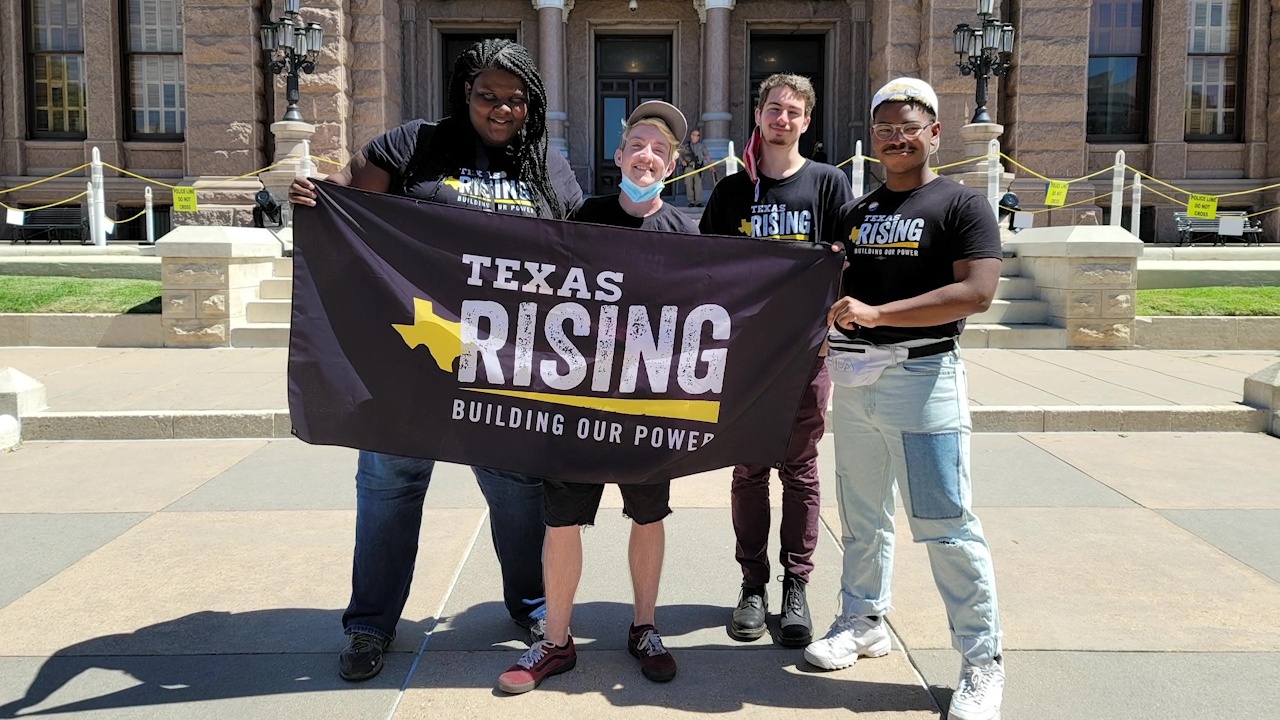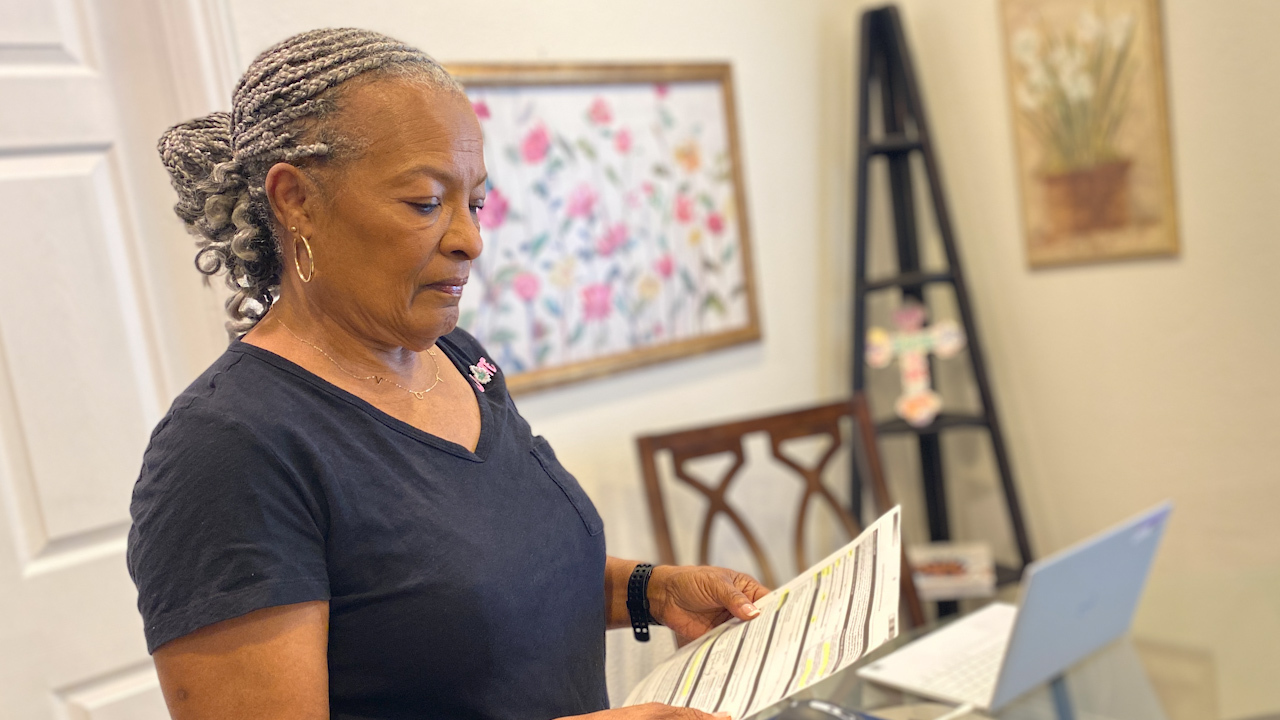Activists motivated to improve Texas voter turnout under Senate Bill 1's restrictive guidelines

HOUSTON, Texas (KTRK) -- Corisha Rogers grew up in Houston's Third Ward neighborhood, experiencing firsthand the impacts of poverty. Rogers said that's what sparked her passion for politics and civic engagement.
"I wanted better for my community. I wanted better for my family. I feel like we are a small voice in such a big picture. We aren't getting much say," said Rogers. "One thing I learned is the power of being active, going to community hearings, city council or commissioner meetings, and understanding who is responsible for the changes or the lack of changes."
Rogers works with Texas Rising, a youth-led voting activism and civic engagement organization, as their Houston regional field coordinator. They have a presence on more than 20 different college and university campuses throughout the state. According to their website, people under the age of 30 now make up 43% of the state's population and soon, they will make up a third of eligible voters.
"I think one of the strongest things that anyone can do is hold their elected leaders accountable," said Rogers.
In August, Rogers joined her organization in testifying against Senate Bill 1 at the Texas State Capitol, which Republican lawmakers said helps prevent voting fraud. But, Rogers argued the new legislation disproportionately impacts marginalized communities. Her mother, who lives with a disability, relies on voting by mail.
"We're afraid of her ballot being rejected because of the new laws that are in effect. It just makes people have to jump through a lot more hurdles in this current era to vote, and voting should be something more simple for people," said Rogers.
"We are starting to take steps backward. In Harris County, we made drive-through voting and 24-hour voting available, which was great for people who needed options," she added. "Like the person who works a graveyard shift or the person who is at-risk of COVID. But now that option isn't available anymore."
WATCH: Missouri City voter says it took 3 tries to register to vote

Someone who's experienced hurdles already under SB 1's new voting guidelines is Missouri City resident, Pam Gaskin. Gaskin calls herself a 'super voter,' making sure to cast her ballot in every election cycle, even if there's only one person on the ballot.
"Voting is the first right of citizenship. Your ability to vote stamps you as a certified, bonafide participant in American democracy, and there's no better feeling than that," said Gaskin. "On Election Day, we are all equal. Bill Gates gets the same one vote that little ole' Pam Gaskin down here in Missouri City gets. That's why it means so much to me. Our bank accounts don't matter. Our status in life doesn't matter."
During Black History Month, she reflected on how hard it was for her parents to vote before the Voting Rights Act passed in 1965. It passed just two weeks after she started attending the University of Texas.
"Black people in Texas couldn't vote unless they paid a poll tax, which was a financial burden. My dad and mother paid poll taxes. They also paid it for other people," said Gaskin. "My parents were activists. So they took us with them to the polls every time they voted. I began volunteering to help people register to vote when I was 18, 19, 20 years old."
But this time around, she said it took her three tries to get her voting registration approved. She submitted the first form on Jan. 3, but said it was rejected because Fort Bend County hadn't posted the new form from the Texas Secretary of State's Office.
After obtaining the correct form, she tried a second time. But, a county employee told her she was being rejected again. They cited a discrepancy between providing her driver's license number versus her social security number that was on file under her voter profile.
Gaskin tried a third time and filled in every field on the form, even if it wasn't required. She and her husband finally got their ballots on Jan. 31, but Gaskin expressed frustration at the new process. She called the new legislation a way to suppress voters in marginalized communities, citing no evidence of widespread voter fraud in Texas.
"I believe Texas legislators did this intentionally," said Gaskin. "If I could talk to these lawmakers, I would say, 'You are trying to select your voters and you are not allowing the voters to select you. That is wrong,'" said Gaskin. "Voting is about power. They see the browning of America and they see power being taken from them."
She said her biggest concern lies with disadvantaged Texans who may be discouraged from voting.
"Think about those who are over 65 years old. Someone who wakes up with arthritis pain or the person living at the nursing home, who may be confined physically. They get a rejection letter and it just may be too much for them to deal with, so they don't vote," said Gaskin.
Gaskin encourages disenfranchised voters to reach out for help to organizations like the League of Women Voters, where she is a member, and do what it takes to get their ballot counted.
"Never let them get to you. Just hang in there. Fill out that next piece of paper. Don't give up, because that is what they want you to do," said Gaskin.
Despite Texas Rising's defeat at the legislature last year, Rogers said it's "go time" with early voting underway for the Texas primary election. They are focused on getting as many Texans to vote as possible. She said they'll be returning to Austin in 2023.
"So many people have lived and died to give you the ability to vote. I really want to encourage you to use it, because you're important. You matter and you need to have your voice heard," said Rogers. "We'll also be at the Capitol again next year to fight for this issue. I'm certain this won't be the end of it."
For stories on Houston's diverse communities, follow Rosie Nguyen on Facebook, Twitter and Instagram.











